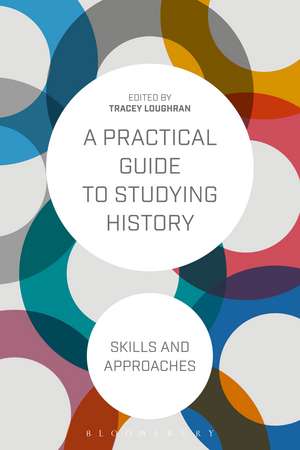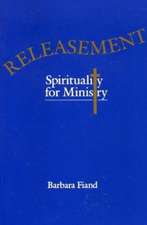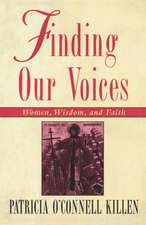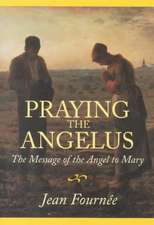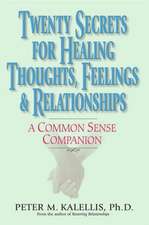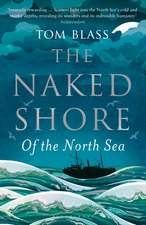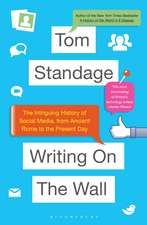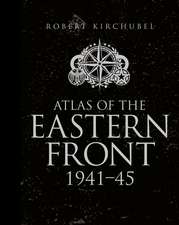A Practical Guide to Studying History: Skills and Approaches
Editat de Tracey Loughranen Limba Engleză Paperback – 11 ian 2017
| Toate formatele și edițiile | Preț | Express |
|---|---|---|
| Paperback (1) | 169.83 lei 3-5 săpt. | +62.20 lei 6-12 zile |
| Bloomsbury Publishing – 11 ian 2017 | 169.83 lei 3-5 săpt. | +62.20 lei 6-12 zile |
| Hardback (1) | 658.92 lei 6-8 săpt. | |
| Bloomsbury Publishing – 11 ian 2017 | 658.92 lei 6-8 săpt. |
Preț: 169.83 lei
Preț vechi: 208.32 lei
-18% Nou
Puncte Express: 255
Preț estimativ în valută:
32.50€ • 35.41$ • 27.38£
32.50€ • 35.41$ • 27.38£
Carte disponibilă
Livrare economică 03-17 aprilie
Livrare express 19-25 martie pentru 72.19 lei
Preluare comenzi: 021 569.72.76
Specificații
ISBN-13: 9781472529985
ISBN-10: 1472529987
Pagini: 352
Ilustrații: 25 bw illus
Dimensiuni: 156 x 234 x 20 mm
Greutate: 0.54 kg
Editura: Bloomsbury Publishing
Colecția Bloomsbury Academic
Locul publicării:London, United Kingdom
ISBN-10: 1472529987
Pagini: 352
Ilustrații: 25 bw illus
Dimensiuni: 156 x 234 x 20 mm
Greutate: 0.54 kg
Editura: Bloomsbury Publishing
Colecția Bloomsbury Academic
Locul publicării:London, United Kingdom
Caracteristici
Contains extensive pedagogical features, including study questions, further reading lists, text boxes, maps, figures and illustrations
Notă biografică
Tracey Loughran is Professor of History at the University of Essex, UK. She is the author of Shell-Shock and Medical Culture in First World War Britain (2017).
Cuprins
List of IllustrationsIntroduction - Tracey Loughran (Cardiff University, UK)Part I: Framing HistoriesIntroduction: Frameworks and Perspectives - Tracey Loughran (Cardiff University, UK)1. Nations - Mark Williams (Cardiff University, UK)2. Periodization - Shaun Tougher (Cardiff University, UK)3. Comparative Histories - Chiara Beccalossi (University of Lincoln, UK)4. Biography - Toby Thacker (Cardiff University, UK)5. People's History - Martin Wright (Cardiff University, UK)6. Identities - Siobhan McGurk (University of Wisconsin-Madison, USA)Part II: The Historian's CraftIntroduction - Tracey Loughran (Cardiff University, UK)7. Historical Research - Garthine Walker (Cardiff University, UK)8. Evidence and Interpretation - Kevin Passmore (Cardiff University, UK)9. Archives - Federica Ferlanti (Cardiff University, UK)10. Documents, Editions and Translations - Helen J. Nicholson (Cardiff University, UK)11. The Good, the Bad, and the Ugly: Sources for Essays - Keir Waddington (Cardiff University, UK)12. Reading and Writing History - Tracey Loughran (Cardiff University, UK)Part III: History in PublicIntroduction - Tracey Loughran (Cardiff University, UK)13. History in Schools - Lloyd Bowen (Cardiff University, UK)14. History and Policy - Matthew Grant (University of Essex, UK)15. Historical Novels - Tracey Loughran (Cardiff University, UK)16. History and Heritage - Stephanie Ward (Cardiff University, UK)17. Exhibiting History - Jane Hamlett (Royal Holloway, University of London, UK)18. Taking History into the World - Dave Wyatt (Cardiff University, UK)Index
Recenzii
A Practical Guide to Studying History should be read by every student embarking on a history degree. It offers a challenging, comprehensive and stimulating introduction to what historians do, to why and how they do it, and also to what skills students need to successfully study history at university. Its chapters, reflecting the professional experience of the authors as researchers and educators, address all the major themes that shape the study of history in today's world. Any student who reads it will acquire a sophisticated understanding of the historian's craft as both they and their lecturers should practice it.
This is the book I've been waiting for: a lively, engaging, sophisticated guide to the pleasures and perils of historical work. It introduces key approaches to history, gives practical guidance on research, sources and essay writing, and reminds us that there is no single roadmap into the past but rather a range of routes and pit stops. It is inspirational stuff. Loughran has drawn together passionate historians who are skilled at communicating their craft with real clarity. By the end of the book we know how to make history and also why it matters. Aimed at those starting out on undergraduate study, the book also speaks to anyone interested in doing historical work and indeed those already immersed in it.
This book will appeal to anyone with a general interest in history, historiography or history education.
This lucid and engaging guide to producing and consuming history should be required reading for history undergraduates (and their teachers). In clear and accessible prose, it explains the latest methodological approaches and debates and serves as a practical handbook to reading, researching, and writing history. The book also follows history into the world beyond the university, with thoughtful chapters on different forms of public or popular history. Each chapter is written by an active practitioner of history, and is based on the most up-to-date scholarship and illuminating case studies.
A Practical Guide to Studying History is a terrific addition to the many books aimed at undergraduate historians. Tracey Loughran's team adopt a fresh approach, setting out to explain how History 'works', analysing how History is produced by academics, by students and by public bodies. The book's 18 accessible and engaging chapters stand out both for their range, from the organisation of archives in China to History teaching in Zimbabwe, and for the practical advice presented to students, including debates about the purpose of a History degree, alongside more familiar topics such as 'People's History' and essay-writing techniques. Highly recommended.
Tracey Loughran has edited a wonderfully down-to-earth introduction to some of the basic problems that history undergraduates grapple with - what do we do with perspectivity? What are the benefits of comparative history writing? What challenges do national histories pose? Why can a biographical approach to historical writing be useful? What are the benefits from a history-from-below perspective? How do we deal with identities in history writing? These are just some of the fascinating questions that are discussed here, showing students that the shifting boundaries of the profession are part and parcel of what history writing is all about. This book is a must for history undergraduates.
This is a wonderful book. Students will appreciate it's clear and engaging introduction to the key concepts and skills required to do History at university.
[T]he chapters are written so as to generate enthusiasm and excitement about doing history. ... [S]tudents who read and comprehend its chapters will quickly progress beyond beginning historians.
This is the book I've been waiting for: a lively, engaging, sophisticated guide to the pleasures and perils of historical work. It introduces key approaches to history, gives practical guidance on research, sources and essay writing, and reminds us that there is no single roadmap into the past but rather a range of routes and pit stops. It is inspirational stuff. Loughran has drawn together passionate historians who are skilled at communicating their craft with real clarity. By the end of the book we know how to make history and also why it matters. Aimed at those starting out on undergraduate study, the book also speaks to anyone interested in doing historical work and indeed those already immersed in it.
This book will appeal to anyone with a general interest in history, historiography or history education.
This lucid and engaging guide to producing and consuming history should be required reading for history undergraduates (and their teachers). In clear and accessible prose, it explains the latest methodological approaches and debates and serves as a practical handbook to reading, researching, and writing history. The book also follows history into the world beyond the university, with thoughtful chapters on different forms of public or popular history. Each chapter is written by an active practitioner of history, and is based on the most up-to-date scholarship and illuminating case studies.
A Practical Guide to Studying History is a terrific addition to the many books aimed at undergraduate historians. Tracey Loughran's team adopt a fresh approach, setting out to explain how History 'works', analysing how History is produced by academics, by students and by public bodies. The book's 18 accessible and engaging chapters stand out both for their range, from the organisation of archives in China to History teaching in Zimbabwe, and for the practical advice presented to students, including debates about the purpose of a History degree, alongside more familiar topics such as 'People's History' and essay-writing techniques. Highly recommended.
Tracey Loughran has edited a wonderfully down-to-earth introduction to some of the basic problems that history undergraduates grapple with - what do we do with perspectivity? What are the benefits of comparative history writing? What challenges do national histories pose? Why can a biographical approach to historical writing be useful? What are the benefits from a history-from-below perspective? How do we deal with identities in history writing? These are just some of the fascinating questions that are discussed here, showing students that the shifting boundaries of the profession are part and parcel of what history writing is all about. This book is a must for history undergraduates.
This is a wonderful book. Students will appreciate it's clear and engaging introduction to the key concepts and skills required to do History at university.
[T]he chapters are written so as to generate enthusiasm and excitement about doing history. ... [S]tudents who read and comprehend its chapters will quickly progress beyond beginning historians.
